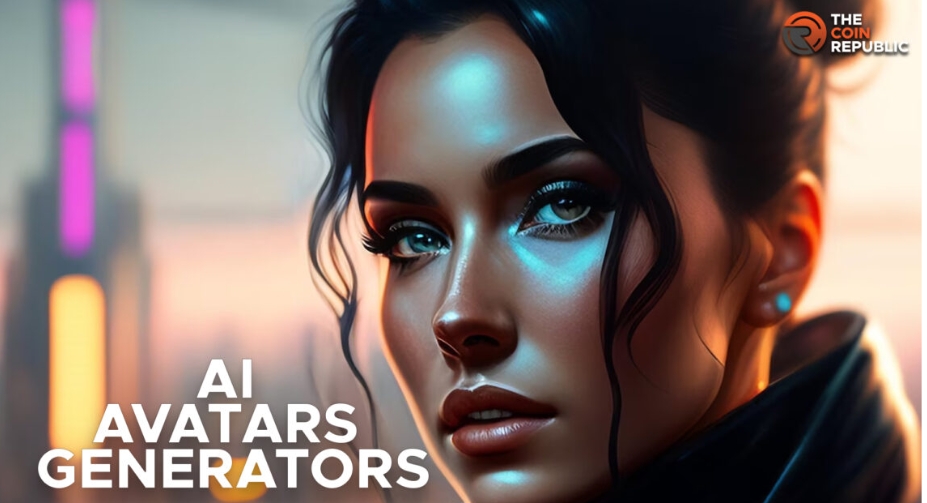In the digital age, where virtual meetings, remote work, and online communities have become ubiquitous, the ways in which we communicate have transformed dramatically. One of the most intriguing advancements in virtual communication is the use of AI avatar generators. These tools are not only reshaping our online interactions but also how we perceive and present ourselves in digital spaces. This blog explores the multifaceted roles of AI avatar generators in virtual communication, examining their benefits, implications, and future potential.
What Are AI Avatar Generators?
AI avatar generators are software tools that use artificial intelligence to create digital representations of users, commonly known as avatars. With this AI avatar generator tool, just upload your video, and it swiftly crafts your avatar in minutes. Utilise this single avatar to produce videos efficiently and in large quantities. AI technologies such as machine learning, neural networks, and computer graphics are leveraged to craft avatars that can mimic human expressions, gestures, and even emotions.
Enhancing Personalization in Virtual Communication
The primary appeal of AI avatar generators lies in their ability to enhance personalization. In a world where digital fatigue is prevalent due to standardised and impersonal interactions, avatars offer a refreshing deviation. They allow users to represent themselves in unique ways, choosing how they appear in terms of hairstyle, facial features, clothing, and more. This level of customization makes virtual interactions more engaging and enjoyable, adding a personal touch to digital communication.
Promoting Anonymity and Privacy
AI-generated avatars play a crucial role in promoting privacy and anonymity online. For individuals concerned about sharing their real identity on the internet, avatars provide a protective layer, enabling participation in virtual environments without revealing personal details. This is particularly valuable in sensitive contexts such as support groups, mental health discussions, or any scenario where confidentiality is paramount.
Bridging Cultural and Linguistic Barriers
Avatars also help in bridging cultural and linguistic divides. AI avatar generators can equip avatars with capabilities to speak and understand multiple languages, making them ideal for international communications. They can mimic cultural nuances and etiquettes, thereby enhancing understanding and reducing miscommunications in global interactions.
Accessibility Enhancements
Accessibility is another significant area where AI avatars are making a mark. For people with disabilities, avatars can act as virtual intermediaries, providing communication aids. For instance, avatars can translate sign language in real-time, helping the deaf and hard of hearing to engage more seamlessly in video calls and virtual meetings.
Improving Engagement in Education and Training
In educational settings, AI avatars are transforming the delivery of content. Educators can use avatars to create dynamic and interactive learning experiences. For example, historical figures can be brought to life through avatars, engaging students in a way that textbooks cannot. Similarly, in corporate training, avatars can simulate real-life scenarios that employees might face, providing a safe environment for practice and learning.
Challenges and Ethical Considerations
Despite their benefits, AI avatar generators come with their set of challenges and ethical considerations. Privacy concerns, while alleviated on one front, can also arise if the data used to create and animate avatars is mismanaged. Addressing these concerns requires robust ethical guidelines and stringent data security measures.
The Future of AI Avatars
Looking forward, the potential of AI avatar generators is immense. As technology advances, we can expect avatars to become more realistic and interactive. This could lead to new forms of entertainment, social interaction, and business engagements. However, it is also crucial to navigate the ethical landscapes to ensure that as we advance, we do so responsibly.
Conclusion
AI avatar generators are more than just a technological novelty; they are a significant tool in the evolution of virtual communication. By offering personalization, promoting privacy, enhancing accessibility, and more, avatars are poised to become a central element in how we interact online. As we continue to integrate digital technologies into our daily lives, understanding and optimising the use of AI avatars will be crucial for creating more meaningful and effective virtual interactions.
In sum, the role of AI avatar generators in virtual communication is dynamic and expansive. As we harness their capabilities, we must also remain vigilant about the ethical and security challenges they present. With thoughtful management and innovative development, AI avatars can significantly enrich our digital communication landscape, making our virtual interactions as nuanced and profound as our real-world conversations.











